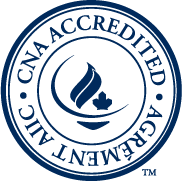Certification in Infection Control
Quick Index
- LTC-CIP Study Group
- CBIC Website
- CBIC News and Media
|
NEW! IPAC CANADA Certification Award Award Information. All details. |
Discounts for Certification
Effective January 1, 2016 a newly certified CIC® or newly certified LTC-CIP will receive a $50 discount applied to his/her IPAC Canada membership in the membership year following certification. This will not apply to a-ICP renewals.
Certification Board of Infection Control and Epidemiology, Inc (CBIC)
 The Certification Board of Infection Control and Epidemiology, Inc. (CBIC) is a voluntary, autonomous, multidisciplinary board that provides direction for, and administers to, the certification process for professionals in infection prevention and control and applied epidemiology. CBIC is independent and separate from any other infection control - related organization or association.
The Certification Board of Infection Control and Epidemiology, Inc. (CBIC) is a voluntary, autonomous, multidisciplinary board that provides direction for, and administers to, the certification process for professionals in infection prevention and control and applied epidemiology. CBIC is independent and separate from any other infection control - related organization or association.
This is the most widely recognized examination for infection control professionals in North America. Partnership with IPAC Canada has resulted in collaboration on examination questions, exam centres being held across Canada and a IPAC Chapter award.
CIC® Certification
 The Certification Board of Infection Control and Epidemiology, Inc. (CBIC) endorses the concept of voluntary, periodic certification for all infection prevention and control professionals meeting educational and practice requirements.
The Certification Board of Infection Control and Epidemiology, Inc. (CBIC) endorses the concept of voluntary, periodic certification for all infection prevention and control professionals meeting educational and practice requirements.
CIC® Recertification
CIC® Recertification is required in order to maintain the CIC® designation. All currently certified (CIC®) professionals in infection prevention and control are eligible for recertification during the year that their certification is due to expire.
There are two methods to obtain recertification:
- Recertification by Examination
- Recertification by Continuing Education (see IPU Criteria Chart for further information)
a-IPC Designation
Advanced Leadership Certification (AL-CIP)
IPAC Canada Statement on Certification*
Infection Prevention and Control Canada (IPAC Canada) endorses as a core requirement for the position of Infection Prevention and Control Professional (ICP), the achievement and maintenance of certification in infection prevention and control, relevant to the ICP's workplace and responsibilities, from the Certification Board of Infection Control and Epidemiology Inc. (CBIC).
The categories of certification are:
- CIC® (Certification in Infection Control), the standardized measure of the basic knowledge, skills and abilities expected of professionals working in the field of infection prevention and control, particularly in acute care settings;
- LTC-CIP (Long-Term Care Certification in Infection Prevention, a standardized measure of the specialized body of knowledge required for competent performance of current infection prevention and control practice in non-acute settings such as LTC, retirement homes, and assisted living facilities; and
- a-IPC (Associate – Infection Prevention and Control), an entry-level certification of basic infection prevention knowledge for the novice IP and those interested in pursuing careers in IPAC. There are not eligibility requirements.
Emeritus CIC® (eCIC) Status is for ICPs entering retirement who currently hold the CIC® credential and meet specific criteria.
An ICP prepares for certification by building competencies6, through a combination of a recognized course(s), on the job mentoring and life-long learning. Certification should be completed between 2-5 years of assuming the roles and responsibilities of infection prevention and control, and maintained thereafter.
Publication Date: Original: 2016; Revision January 2024.
**********************************
Énoncé de PCI Canada sur la certification*
Prévention et contrôle des infections Canada (PCI Canada) recommande en tant qu’exigence fondamentale pour occuper un poste de professionnel de la prévention et du contrôle des infections1 d’obtenir et de maintenir auprès de la Certification Board of Infection Control and Epidemiology Inc. (CBIC) une certification qui correspond au milieu de travail et aux responsabilités du poste en question.
Les catégories de certification sont :
- CIC® (Certification in Infection Control) [Certification en contrôle des infections]; c’est la mesure standardisée des connaissances générales, des compétences et des habiletés attendues chez les professionnels du domaine de la prévention et du contrôle des infections, particulièrement dans les établissements de soins actifs2 ;
- LTC-CIP® (Long-Term Care Certification in Infection Prevention) [Certification en prévention des infections pour les soins de longue durée]; c’est une mesure standardisée de l’ensemble des connaissances spécialisées nécessaires au respect des pratiques actuelles de la prévention et du contrôle des infections dans les contextes de soins non actifs, comme les établissements de soins de longue durée, les maisons de retraite et les logements avec assistance3 ; et
- a-IPC® (Associate – Infection Prevention and Control) [Auxiliaire à la prévention et au contrôle des infections]; c’est une certification de premier échelon visant les connaissances de base pour les novices ou les personnes qui s’intéressent à poursuivre une carrière dans le domaine. Il n’y a pas de conditions d’admissibilité4.
- Emeritus CIC® (eCIC®) Status [certification émérite]; cette catégorie s’adresse aux titulaires d’une certification CIC® qui arrivent à la retraite et qui répondent à des critères particuliers5.
Un professionnel ou une professionnelle de la PCI se prépare à obtenir la certification en développant les compétences voulues 6 par divers moyens, dont un ou des cours reconnus, le mentorat en milieu de travail et l’éducation permanente. Une personne qui assume des rôles et des responsabilités en matière de prévention et de contrôle des infections devrait obtenir la certification dans les deux à cinq années prochaines et la maintenir par la suite.
Date de publication : Originale : 2016 Révision : janvier 2024








